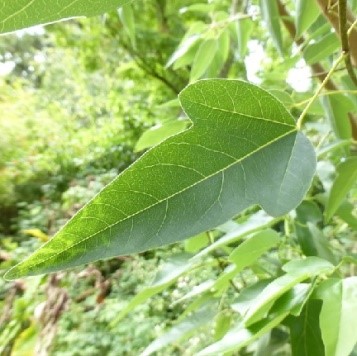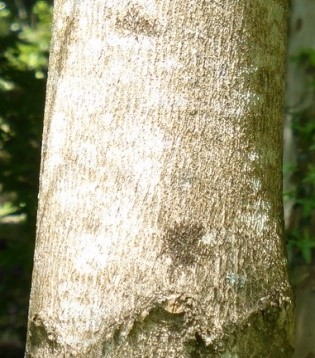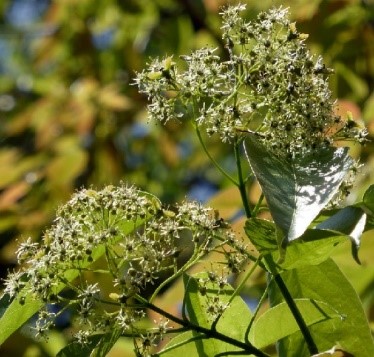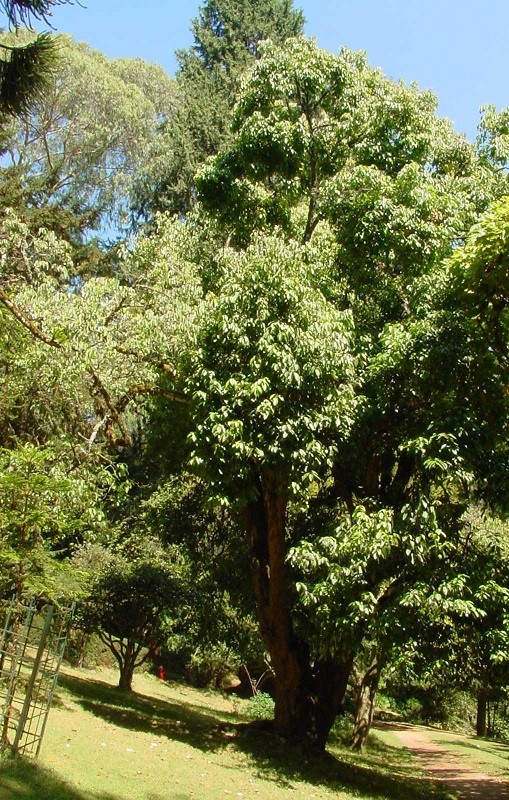Trees
Acer oblongum Wall. Ex D.C.
Acer oblongum Wall. Ex D.C.
Description :
A
slow growing deciduous tree 12 to 15 m tall. The crown is closed, oval shaped
and stem diameters of 40 to 50 cm have been reported. Leaves are simple,
alternate, and oblong to lance shaped, 5 to 18 cm long and 2 to 8 cm wide. The
older leaves may drop as new leaves are formed so the tree may never appear
leafless. The bark is grey, smooth with vertical wrinkles, and the trunk often
irregularly swollen at the base. The
flowers are small, yellowish-green and are arranged in small, dense bunches. It
flowers between February and April. The seed are borne in pairs. The seeds are
flattened, joined and each seed has a thin papery wing (double samara). The
seed matures between May and November. It can be reproduced both from seed and
by vegetative means. Initial growth is slow but increases with age. Average
height growth for 4 years is 2 m and a MAI of 2.25 m3/ha/yr has been
recorded. Grain is straight, slightly interlocking, and very fine textured. Sapwood
and heartwood are not distinct and are white to greyish brown. Weak in strength
having specific gravity of 0.70
Distribution :
This tree is native to Pakistan, India, Nepal, Bhutan, and South China.
In Pakistan it is found in a sub-Himalayan tract, eastward from the Indus
River. It is grown as an ornamental in the plains. A moderately shade tolerant
(at least at an early age) tree that grows on a variety of well drained sites.
It is quite adaptable on porous soils. It requires a precipitation zone of 750
to 1500 mm/yr. It prefers a humid cool, to sub-tropical monsoon climate with a
temperature range of -3.5 to 40°C, and elevation range of 600 to 2000 m. It is
frost hardy. It has no significant insect or disease problems
Uses :
This
tree is rare or hard to find in Pakistan. Because it can be used as a fodder
tree and is good for shade and fuel, it has potential as a farm forestry tree.
It is a valuable component of the mixed coniferous forest and is being
harvested without replacement. It is easily established by planting. Fodder,
agricultural implements, fuel, and ornamental.



